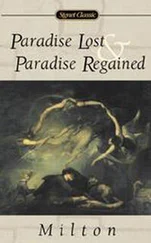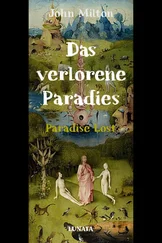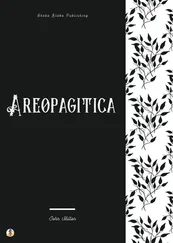John Milton - L'Allegro, Il Penseroso, Comus, and Lycidas
Здесь есть возможность читать онлайн «John Milton - L'Allegro, Il Penseroso, Comus, and Lycidas» весь текст электронной книги совершенно бесплатно (целиком полную версию без сокращений). В некоторых случаях можно слушать аудио, скачать через торрент в формате fb2 и присутствует краткое содержание. Год выпуска: 2015, Издательство: epubBooks Classics, Жанр: Поэзия, на английском языке. Описание произведения, (предисловие) а так же отзывы посетителей доступны на портале библиотеки ЛибКат.
- Название:L'Allegro, Il Penseroso, Comus, and Lycidas
- Автор:
- Издательство:epubBooks Classics
- Жанр:
- Год:2015
- ISBN:нет данных
- Рейтинг книги:3 / 5. Голосов: 1
-
Избранное:Добавить в избранное
- Отзывы:
-
Ваша оценка:
- 60
- 1
- 2
- 3
- 4
- 5
L'Allegro, Il Penseroso, Comus, and Lycidas: краткое содержание, описание и аннотация
Предлагаем к чтению аннотацию, описание, краткое содержание или предисловие (зависит от того, что написал сам автор книги «L'Allegro, Il Penseroso, Comus, and Lycidas»). Если вы не нашли необходимую информацию о книге — напишите в комментариях, мы постараемся отыскать её.
L'Allegro, Il Penseroso, Comus, and Lycidas — читать онлайн бесплатно полную книгу (весь текст) целиком
Ниже представлен текст книги, разбитый по страницам. Система сохранения места последней прочитанной страницы, позволяет с удобством читать онлайн бесплатно книгу «L'Allegro, Il Penseroso, Comus, and Lycidas», без необходимости каждый раз заново искать на чём Вы остановились. Поставьте закладку, и сможете в любой момент перейти на страницу, на которой закончили чтение.
Интервал:
Закладка:
The second Song presents them to their Father and Mother.
Noble Lord and Lady bright,
I have brought ye new delight.
Here behold so goodly grown
Three fair branches of your own.
Heaven hath timely tried their youth,
Their faith, their patience, and their truth,
And sent them here through hard assays
With a crown of deathless praise,
To triumph in victorious dance
O'er sensual folly and intemperance.
The dances ended, the SPIRIT epiloguizes.
SPIR. To the ocean now I fly,
And those happy climes that lie
Where day never shuts his eye,
Up in the broad fields of the sky.
There I suck the liquid air,
All amidst the gardens fair
Of Hesperus, and his daughters three
That sing about the golden tree.
Along the crisped shades and bowers
Revels the spruce and jocund Spring;
The Graces and the rosy–bosomed Hours
Thither all their bounties bring.
There eternal Summer dwells;
And west winds with musky wing
About the cedarn alleys fling
Nard and cassia's balmy smells.
Iris there with humid bow
Waters the odorous banks, that blow
Flowers of more mingled hue
Than her purfled scarf can shew,
And drenches with Elysian dew
(List, mortals, if your ears be true)
Beds of hyacinth and roses,
Where young Adonis oft reposes,
Waxing well of his deep wound,
In slumber soft, and on the ground
Sadly sits the Assyrian queen.
But far above, in spangled sheen,
Celestial Cupid, her famed son, advanced
Holds his dear Psyche, sweet entranced
After her wandering labours long,
Till free consent the gods among
Make her his eternal bride,
And from her fair unspotted side
Two blissful twins are to be born,
Youth and Joy; so Jove hath sworn.
But now my task is smoothly done:
I can fly, or I can run,
Quickly to the green earth's end,
Where the bowed welkin slow doth bend,
And from thence can soar as soon
To the corners of the moon.
Mortals, that would follow me,
Love virtue; she alone is free.
She can teach ye how to climb
Higher than the sphery chime;
Or, if Virtue feeble were,
Heaven itself would stoop to her.
Lycidas
In this Monody the author bewails a learned Friend, unfortunately drowned in his passage from Chester on the Irish Seas, 1637; and, by occasion, foretells the ruin of our corrupted Clergy, then in their height.
YET once more, O ye laurels, and once more,
Ye myrtles brown, with ivy never sere,
I come to pluck your berries harsh and crude,
And with forced fingers rude
Shatter your leaves before the mellowing year.
Bitter constraint and sad occasion dear
Compels me to disturb your season due;
For Lycidas is dead, dead ere his prime,
Young Lycidas, and hath not left his peer.
Who would not sing for Lycidas? he knew
Himself to sing, and build the lofty rhyme.
He must not float upon his watery bier
Unwept, and welter to the parching wind,
Without the meed of some melodious tear.
Begin, then, Sisters of the sacred well
That from beneath the seat of Jove doth spring;
Begin, and somewhat loudly sweep the string.
Hence with denial vain and coy excuse:
So may some gentle Muse
With lucky words favour my destined urn,
And as he passes turn,
And bid fair peace be to my sable shroud!
For we were nursed upon the self–same hill,
Fed the same flock, by fountain, shade, and rill;
Together both, ere the high lawns appeared
Under the opening eyelids of the Morn,
We drove a–field, and both together heard
What time the grey–fly winds her sultry horn,
Battening our flocks with the fresh dews of night,
Oft till the star that rose at evening bright
Toward heaven's descent had sloped his westering wheel.
Meanwhile the rural ditties were not mute;
Tempered to the oaten flute,
Rough Satyrs danced, and Fauns with cloven heel
From the glad sound would not be absent long;
And old Damoetas loved to hear our song.
But, oh! the heavy change, now thou art gone,
Now thou art gone and never must return!
Thee, Shepherd, thee the woods and desert caves,
With wild thyme and the gadding vine o'ergrown,
And all their echoes, mourn.
The willows, and the hazel copses green,
Shall now no more be seen
Fanning their joyous leaves to thy soft lays.
As killing as the canker to the rose,
Or taint–worm to the weanling herds that graze,
Or frost to flowers, that their gay wardrobe wear,
When first the white–thorn blows;
Such, Lycidas, thy loss to shepherd's ear.
Where were ye, Nymphs, when the remorseless deep
Closed o'er the head of your loved Lycidas?
For neither were ye playing on the steep
Where your old bards, the famous Druids, lie,
Nor on the shaggy top of Mona high,
Nor yet where Deva spreads her wizard stream.
Ay me! I fondly dream
Had ye been there, S … for what could that have done?
What could the Muse herself that Orpheus bore,
The Muse herself, for her enchanting son,
Whom universal nature did lament,
When, by the rout that made the hideous roar,
His gory visage down the stream was sent,
Down the swift Hebrus to the Lesbian shore?
Alas! what boots it with uncessant care
To tend the homely, slighted, shepherd's trade,
And strictly meditate the thankless Muse?
Were it not better done, as others use,
To sport with Amaryllis in the shade,
Or with the tangles of Neaera's hair?
Fame is the spur that the clear spirit doth raise
(That last infirmity of noble mind)
To scorn delights and live laborious days;
But, the fair guerdon when we hope to find,
And think to burst out into sudden blaze,
Comes the blind Fury with the abhorred shears,
And slits the thin–spun life. "But not the praise,"
Phoebus replied, and touched my trembling ears:
"Fame is no plant that grows on mortal soil,
Nor in the glistering foil
Set off to the world, nor in broad rumour lies,
But lives and spreads aloft by those pure eyes
And perfect witness of all–judging Jove;
As he pronounces lastly on each deed,
Of so much fame in heaven expect thy meed."
O fountain Arethuse, and thou honoured flood,
Smooth–sliding Mincius, crowned with vocal reeds,
That strain I heard was of a higher mood.
But now my oat proceeds,
And listens to the Herald of the Sea,
That came in Neptune's plea.
He asked the waves, and asked the felon winds,
What hard mishap hath doomed this gentle swain?
And questioned every gust of rugged wings
That blows from off each beaked promontory.
They knew not of his story;
And sage Hippotades their answer brings,
That not a blast was from his dungeon strayed:
The air was calm, and on the level brine
Sleek Panope with all her sisters played.
It was that fatal and perfidious bark,
Built in the eclipse, and rigged with curses dark,
That sunk so low that sacred head of thine.
Next, Camus, reverend sire, went footing slow,
His mantle hairy, and his bonnet sedge,
Inwrought with figures dim, and on the edge
Like to that sanguine flower inscribed with woe.
"Ah! who hath reft," quoth he, "my dearest pledge?"
Last came, and last did go,
The Pilot of the Galilean Lake;
Two massy keys he bore of metals twain.
(The golden opes, the iron shuts amain).
He shook his mitred locks, and stern bespake:—
"How well could I have spared for thee, young swain,
Enow of such as, for their bellies' sake,
Creep, and intrude, and climb into the fold!
Of other care they little reckoning make
Than how to scramble at the shearers' feast,
And shove away the worthy bidden guest.
Blind mouths! that scarce themselves know how to hold
A sheep–hook, or have learnt aught else the least
That to the faithful herdman's art belongs!
What recks it them? What need they? They are sped:
And, when they list, their lean and flashy songs
Grate on their scrannel pipes of wretched straw;
The hungry sheep look up, and are not fed,
But, swoln with wind and the rank mist they draw,
Rot inwardly, and foul contagion spread;
Besides what the grim wolf with privy paw
Daily devours apace, and nothing said.
But that two–handed engine at the door
Stands ready to smite once, and smite no more."
Return, Alpheus; the dread voice is past
That shrunk thy streams; return Sicilian Muse,
And call the vales, and bid them hither cast
Their bells and flowerets of a thousand hues.
Ye valleys low, where the mild whispers use
Of shades, and wanton winds, and gushing brooks,
On whose fresh lap the swart star sparely looks,
Throw hither all your quaint enamelled eyes,
That on the green turf suck the honeyed showers,
And purple all the ground with vernal flowers.
Bring the rathe primrose that forsaken dies,
The tufted crow–toe, and pale jessamine,
The white pink, and the pansy freaked with jet,
The glowing violet,
The musk–rose, and the well–attired woodbine,
With cowslips wan that hang the pensive head,
And every flower that sad embroidery wears;
Bid amaranthus all his beauty shed,
And daffadillies fill their cups with tears,
To strew the laureate hearse where Lycid lies.
For so, to interpose a little ease,
Let our frail thoughts dally with false surmise,
Ay me! whilst thee the shores and sounding seas
Wash far away, where'er thy bones are hurled;
Whether beyond the stormy Hebrides,
Where thou perhaps under the whelming tide
Visit'st the bottom of the monstrous world;
Or whether thou, to our moist vows denied,
Sleep'st by the fable of Bellerus old,
Where the great Vision of the guarded mount
Looks toward Namancos and Bayona's hold.
Look homeward, Angel, now, and melt with ruth:
And, O ye dolphins, waft the hapless youth.
Weep no more, woeful shepherds, weep no more,
For Lycidas, your sorrow, is not dead,
Sunk though he be beneath the watery floor.
So sinks the day–star in the ocean bed,
And yet anon repairs his drooping head,
And tricks his beams, and with new–spangled ore
Flames in the forehead of the morning sky:
So Lycidas sunk low, but mounted high,
Through the dear might of Him that walked the waves,
Where, other groves and other streams along,
With nectar pure his oozy locks he laves,
And hears the unexpressive nuptial song,
In the blest kingdoms meek of joy and love.
There entertain him all the Saints above,
In solemn troops, and sweet societies,
That Sing, and singing in their glory move,
And wipe the tears for ever from his eyes.
Now, Lycidas, the shepherds weep no more;
Henceforth thou art the Genius of the shore,
In thy large recompense, and shalt be good
To all that wander in that perilous flood.
Thus sang the uncouth swain to the oaks and rills,
While the still morn went out with sandals grey:
He touched the tender stops of various quills,
With eager thought warbling his Doric lay:
And now the sun had stretched out all the hills,
And now was dropt into the western bay.
At last he rose, and twitched his mantle blue:
Tomorrow to fresh woods, and pastures new.
Интервал:
Закладка:
Похожие книги на «L'Allegro, Il Penseroso, Comus, and Lycidas»
Представляем Вашему вниманию похожие книги на «L'Allegro, Il Penseroso, Comus, and Lycidas» списком для выбора. Мы отобрали схожую по названию и смыслу литературу в надежде предоставить читателям больше вариантов отыскать новые, интересные, ещё непрочитанные произведения.
Обсуждение, отзывы о книге «L'Allegro, Il Penseroso, Comus, and Lycidas» и просто собственные мнения читателей. Оставьте ваши комментарии, напишите, что Вы думаете о произведении, его смысле или главных героях. Укажите что конкретно понравилось, а что нет, и почему Вы так считаете.












